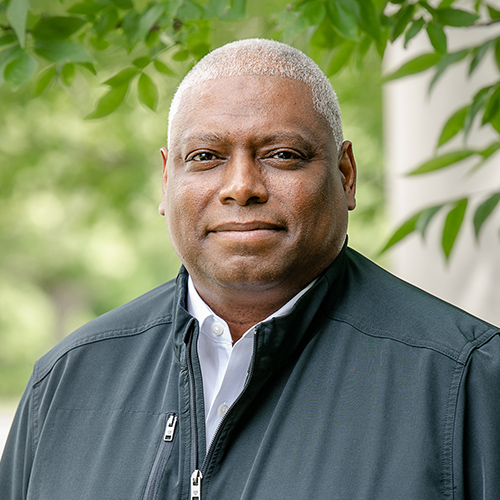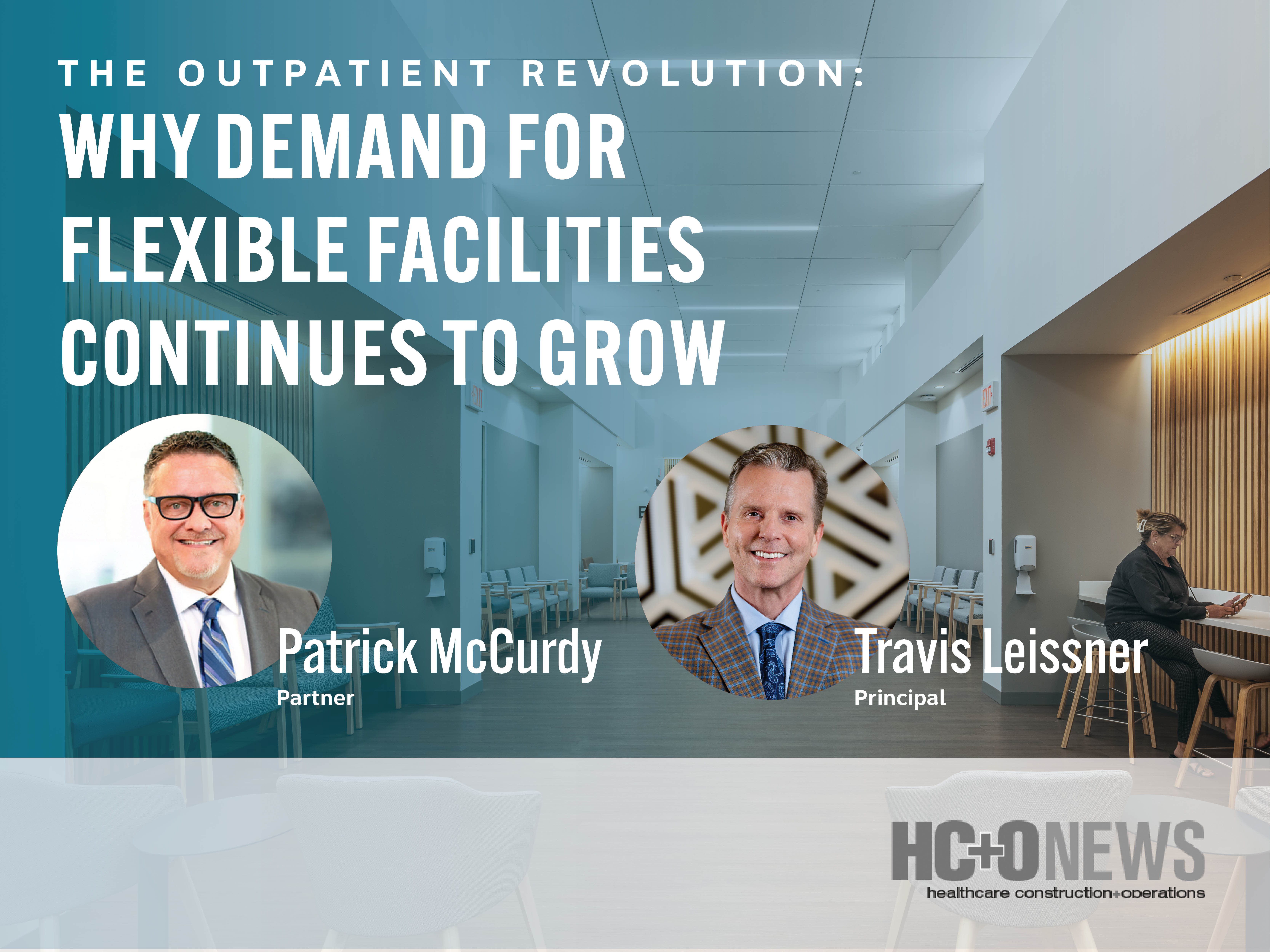The Outpatient Revolution: Why Demand for Flexible Facilities Continues to Grow
In a recent HCO News feature, Patrick McCurdy and Travis Leissner explore how healthcare delivery is rapidly evolving toward accessible, efficient...
Diversity, equity and inclusion (DE&I) and mentorship are pillars for success in high-performing workplaces, yet they can often be overlooked in the day-to-day hustle. In the first of a three-part blog series, we spoke with Eric Rush about the positive role and impact mentorship has had on his career — and its importance for the industry.
Mentorship is critical for growth; that has been my experience. Having a mentor allows young professionals to learn from someone’s real-world experiences, which helps when making decisions throughout a long career. That’s the role I play in my job at Hoefer Welker every day.
Absolutely. Having the perspective of someone you can relate to is essential. Young professionals who are underrepresented in our industry are always going to benefit from seeing someone else like them succeed. The reality in our world is that no two people will have the same background, but they will always benefit from seeing someone else’s path to success. When you show someone that you’ve been in their shoes, you give them more confidence to realize their goals.
The best thing about being an architect on a diverse team is the freedom to acknowledge we don’t know everything. We learn from those around us because everyone brings something different to the table. In the architecture world, everybody is constantly tossing ideas around, so you get to hear a lot of different approaches and perspectives.
As a construction administration manager at Hoefer Welker, I’m essentially a mentor to all our new project architects. Throughout different projects, I mentor young professionals about what it means to be an architect. Together, we work through issues they will see in future projects, discuss ways to handle client conflict and create a cohesive team across specialties. I view my role as a problem solver, and therefore, mentoring is an essential piece of my job.
People have a lot of questions but don’t take the step to ask. As mentors, it is our job to find ways to encourage others to ask questions they might be afraid or uncomfortable asking.
People have a lot of questions but don’t take the step to ask. As mentors, it is our job to find ways to encourage others to ask questions they might be afraid or uncomfortable asking. As a young architect, it can be intimidating to ask questions of those above you. I think some people don’t know that it’s okay to ask a question that might lead them in the wrong direction. Those are the times when mentors can step in and provide guidance to steer them in the right direction.
When I was an intern, I was in a project kickoff meeting with the client for one of my first projects. I sat at the end of the table, quietly observed, and took notes for our team. After we left the meeting, my boss pulled me aside and said, “You didn’t say anything.” At that time, I didn’t know I was allowed to say anything. At that moment, he taught me that younger professionals need to take all the opportunities they can to speak up and ask questions. I give that advice to everyone I work with: Don’t be afraid to learn.
Know what your goal is before you set out to be a mentor. Do you want to increase your company’s standing in the industry? Do you want to elevate the next generation of innovative ideas and processes? Do you want to pay it forward to those that helped you along the way? Sometimes young professionals don’t know the assistance they really need. Of course, mentors can point people toward resources to learn more and answer basic questions, but be prepared to share real-world successes and failures and bring them into your professional network. Mentors can make a significant impact on young professionals’ career exploration process.
Feedback isn’t always easy, but it can help you learn and change your career. So, you have to understand that there will be hardships along the way.
Find someone you feel is trustworthy, honest and truly believes in the value of mentorship. And when you find that person, approach the relationship with openness and a willingness to learn. Feedback isn’t always easy, but it can help you learn and change your career. So, you have to understand that there will be hardships along the way. Mentors provide real insight and will challenge you to be a better professional every day.
One of the organizations I’ve been involved with is the National Organization of Minority Architects, which recently chartered a Kansas City chapter. It’s an inclusive group of men and women of all ages and backgrounds who are interested in all things architecture and how people’s backgrounds shape our work

Eric has more than 30 years of experience in architecture, construction administration, quality control, technical specification writing, design-build construction, owner’s representative and project management. Since joining Hoefer Welker in 2010, he has contributed to projects including the Tallahassee, Jacksonville, San Antonio and Lubbock VA Outpatient Clinics, Kansas State University Foundation Office Park, the Hansen Family Hospital, Anderson County Hospital, 46 Penn Centre, and the Hedrick Medical Center. Eric holds a Bachelor of Architecture from Kansas State University.

In a recent HCO News feature, Patrick McCurdy and Travis Leissner explore how healthcare delivery is rapidly evolving toward accessible, efficient...

Hoefer Welker is serving as architect for a proposed 33-story residential high-rise at 16th and Broadway in downtown Kansas City. Developed by EPC...

As we kick off the new year, our team at Hoefer Welker is taking the opportunity to reflect on the excellent year we had in 2025. Thanks to the...
